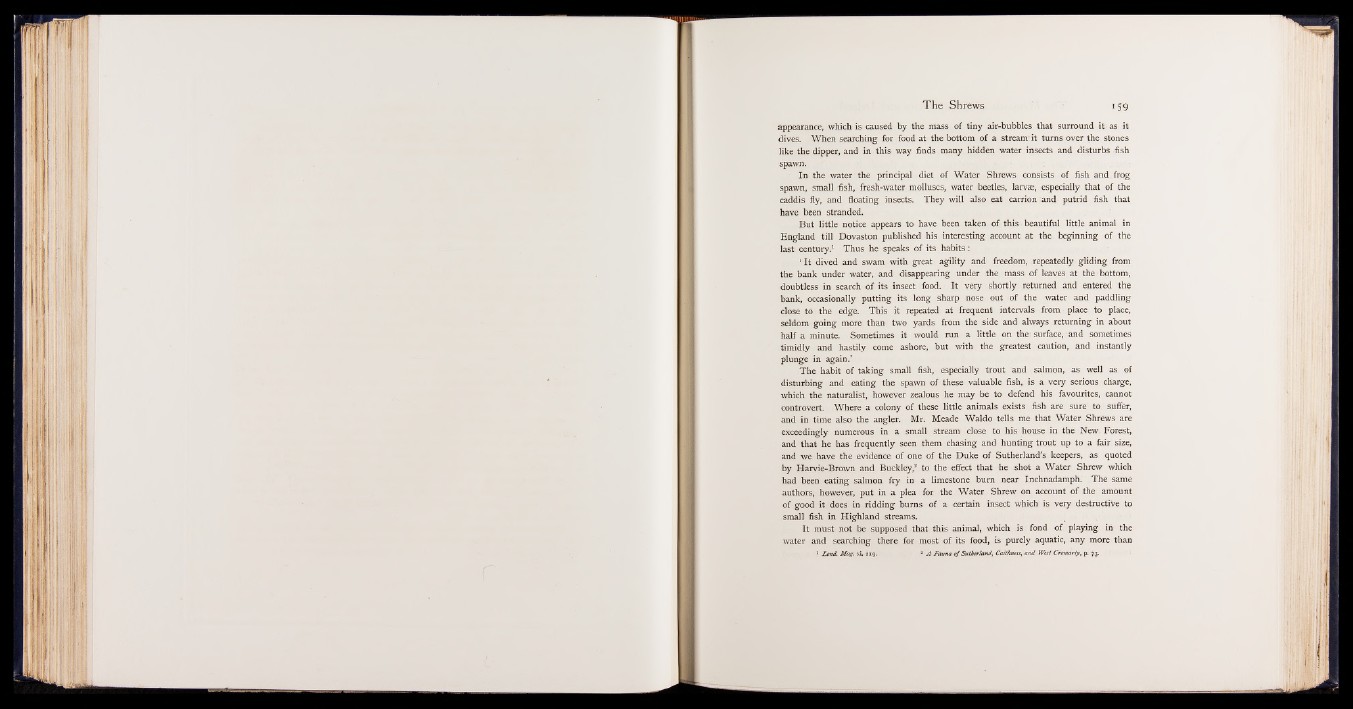
appearance, which is caused by the mass of tiny air-bubbles that surround it; as it
dives. When searching for food at the bottom of a stream: it turns over the stones
like the dipper, and in this way finds many hidden water insects and disturbs fish
spawn.
In the water the principal diet of Water Shrews consists of fish and frog
spawn, small fish, fresh-water molluscs, water beetles, larvse, especially that of the
caddis fly, and floating insects. They will also eat carrion and putrid fish that
have been stranded.
But little notice appears to have been taken of this beautiful little animal in
England till Dovaston published his interesting account at the beginning of the
last century.1 Thus he speaks of its habits:
‘ It dived and swam , with great agility and freedom, repeatedly gliding from
the bank under water, and disappearing under the mass of leaves at the-bottom,
doubtless in search of its insect food. It very shortly returned and entered the
bank, occasionally putting its long sharp nose out of the water and paddling
close to the edge. This it repeated at frequent intervals from place to place,
seldom going more than two yards from the side and always returning in about
half a minute. Sometimes it would run a little on the! surface, and sometimes
timidly and hastily come ashore, but with the greatest caution, and instantly
plunge in again.’
The habit of taking small fish, especially trout and salmon, as well as of
disturbing and eating the spawn of these valuable fish, is a very serious charge,
which the naturalist, however zealous he may be to defend his favourites, cannot
controvert. Where a colony of these little animals exists fish are sure to suffer,
and in time also the angler. Mr. Meade Waldo tells me that Water Shrews are
exceedingly numerous in a small stream close to his house in the New, Forest,
and that he has frequently seen them chasing and hunting trout up to a fair size,
and we have the evidence of one of the Duke of Sutherland’s keepers, as quoted
by Harvie-Brown and Buckley,2 to the effect that he shot a Water Shrew which
had been eating salmon fry in a limestone burn near Inchnadamph. The same
authors, however, put in a plea for the Water Shrew on account of the amount
of good it does in ridding burns of a certain insect which is very destructive to
small fish in Highland streams.
It must not be supposed that this animal, which is fond of playing iii the
water and searching there for most of its food, is purely aquatic, any more than
1 Lond. Mag. xi. 2191 a A Fauna o f Sutherland, Caithness, and West Cromarty, p. $3.